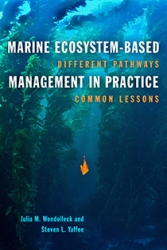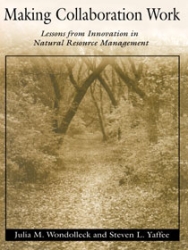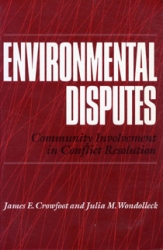
Julia M. Wondolleck
Julia M. Wondolleck is Associate Professor of Natural Resources and Environmental Policy at the University of Michigan. She is an expert in the theories and application of dispute resolution and collaborative planning processes, and is the author or coauthor of three books: Public Lands Conflict and Resolution: Managing National Forest Disputes (Plenum 1988), Environmental Disputes: Community Involvement in Conflict Resolution (Island Press 1990), and Making Collaboration Work: Lessons from Innovation in Natural Resource Management (Island Press 2000). Raised in the San Francisco Bay Area, she spent her youth sailing on the Bay and hiking in the Sierra. As a result, her research interests span both terrestrial and marine realms, most recently examining collaborative science in the NOAA National Estuarine Research Reserve System, contributions of Sanctuary Advisory Councils in the NOAA National Marine Sanctuary Program, and community engagement strategies for the NOAA Marine Protected Areas Center. Dr. Wondolleck has an undergraduate degree in economics and environmental studies from the University of California–Davis and a master's degree and PhD in environmental policy and planning from the Massachusetts Institute of Technology.



